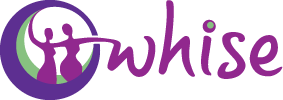As part of an annual, international health promotion campaign to support equality and access to health services, Women’s Health in the South East joins with over 17 other organisations across Victoria to support Sexual Health and Reproductive Week (SRH Week).
The campaign aims to encourage understanding and awareness about the importance of having open and informed conversations about sexual and reproductive health. The campaign advocates that all people should have access to accurate and trusted sources of information to make informed choices.
“We celebrate and applaud those agencies and organisations that share these messages and are part of the campaign,” says Kit McMahon, CEO, Women’s Health in the South East.
“It is really important that facts and credible information is shared with our community so that they can make positive choices for themselves.
“We absolutely reject any suggestion that this campaign is anything but providing access to evidence-based information that is inclusive, affirmative and culturally safe.
“All people in the state of Victoria have the right to make decisions about their bodies and to be supported in that without stigma, discrimination or judgement – this includes abortion and participating in consensual relationships.”
In fact, abortion is widely supported in Australia, with 87 to 95 per cent in favour of legal abortion. It is also a commonplace medical procedure: at least 1 in 4 women have an abortion in their lifetime in Australia. Access to healthcare services including abortion is also a fundamental human right. “The Herald Sun’s sources are at best fake news and not informed by the evidence base.
“WHISE applauds the leadership of Mornington Peninsula Shire Council in sharing these messages and credible information with their community. The Council is absolutely doing the core work of what councils are here for – making their community healthy happier and safer,” says McMahon.
Councils are legally mandated under the Public Health and Wellbeing Act 2008 to address health issues in their local community, including promoting access to services and information. Sexual and reproductive health is one of ten priority areas indicated by the Victorian Department of Health for councils to address.
The latest statistics about women’s health and safety show that across a number of indicators, providing comprehensive, evidence-based information about sexual and reproductive health is important. Data from the Crime Statistics Agency of Victoria highlights that in 2020 there were 8,747 reports of sexual offences logged by Victoria Police, overwhelmingly perpetrated against women, across the whole Southern Metropolitan Melbourne region.1. There is strong evidence that people’s lack of understanding about sexual consent is concerning and can result in sexual assault and victim-blaming. This is particularly worrying given the rise of digital image sharing, dating apps and people’s access to online pornography. Encouraging conversations about sexual pleasure helps empower women and girls, and inform potential male partners, about what they can rightfully expect as part of healthy sexual relationships.2.
“When we promote healthy relationships, when we promote the accurate information and when we distribute positive messages about the right to healthy safe lives – this reduces the incidence of assault, of inequality and poor attitudes. Councils and agencies are doing their job when they collectively work together on promoting evidence,” says Ms McMahon.
Ms McMahon says that the article published in the Herald Sun trivialises very important health issues.
“If only it were just about sex toys. It clearly is not – it’s about health and safety and we should not be making matters worse by reporting that it is. It’s hardly controversial in 2021 to state that sex should be pleasurable for all participants.”
References:
1. Crime Statistics Agency Victoria, Victim reports for selected offences by region, LGA and sex of victim – January to December 2020. Category: A30 Sexual offences. Data extracted from LEAP on 18 January 2021.
2. ANROWS, NCAS 2017 Youth Report Findings https://www.anrows.org.au/NCAS/2017/youth-report-findings/


